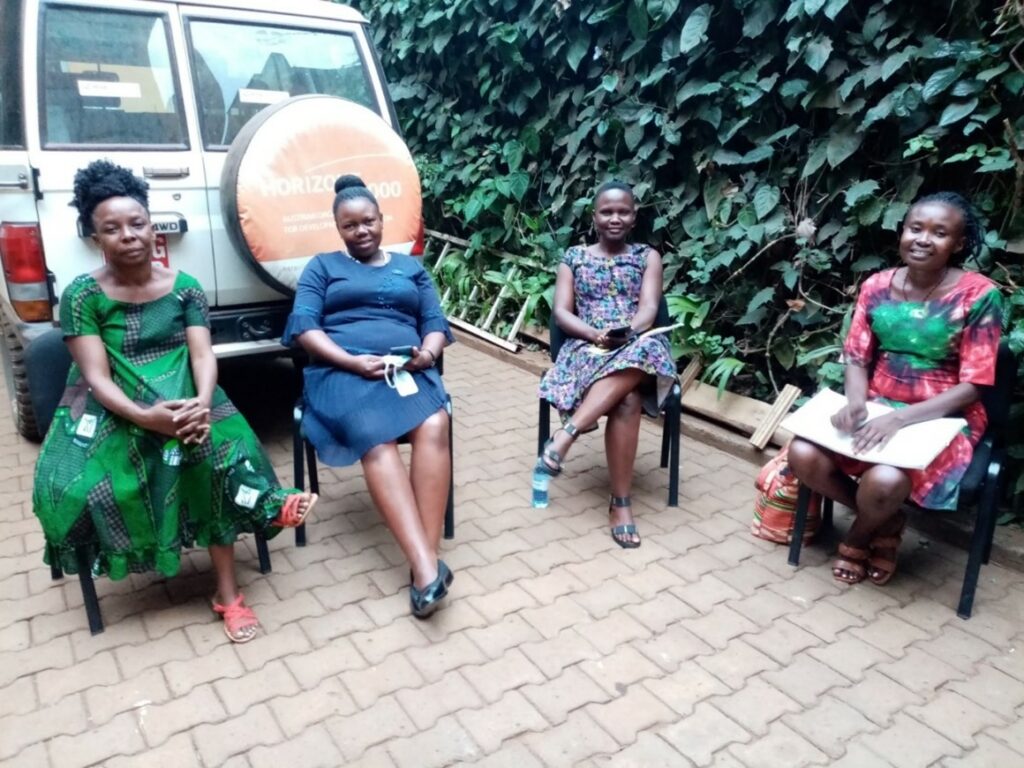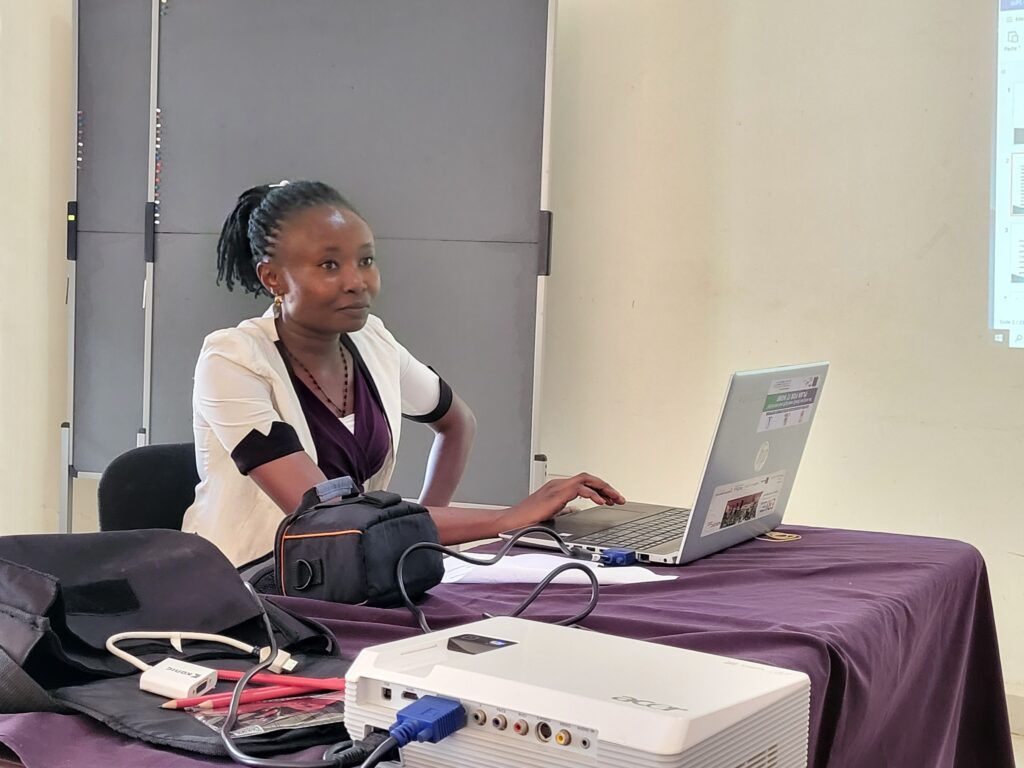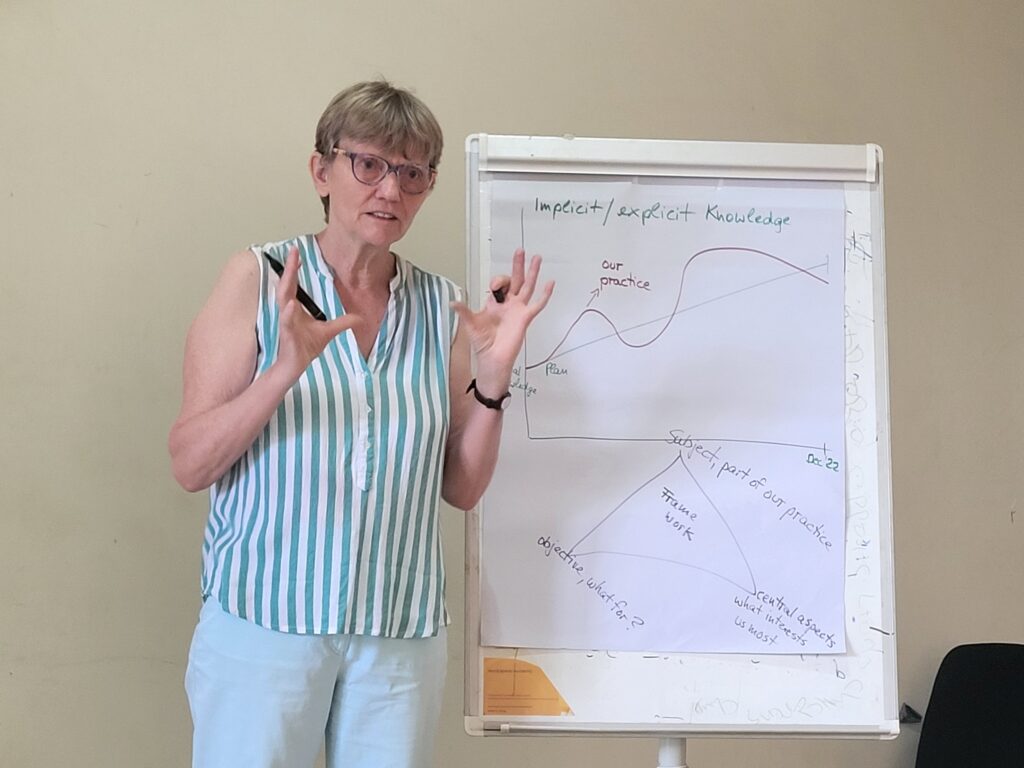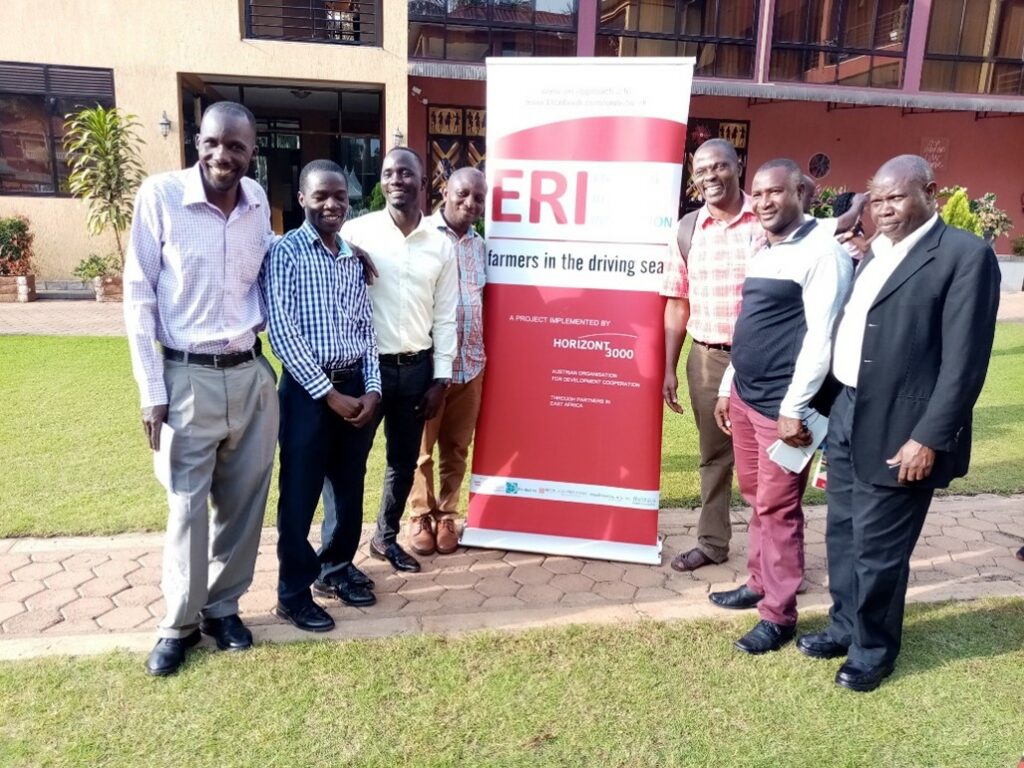Make Your Experiences Count. They Can Change the World.
LET’S BRING ALL OF OUR KNOWLEDGE AND EXPERIENCES TOGETHER.
TOGETHER WE KNOW MORE. TOGETHER WE ACHIEVE MORE. TOGETHER WE DO BETTER.
LET’S BRING ALL OF OUR KNOWLEDGE AND EXPERIENCES TOGETHER.
TOGETHER WE KNOW MORE. TOGETHER WE ACHIEVE MORE. TOGETHER WE DO BETTER.
Published: October 12, 2022
The ERI (Enabling Rural Innovation) East Africa Project has undertaken yet another systematisation of their experiences. For those who have not heard about it yet, ERI is a strategic approach that helps smallholder farmers to become self-reliant entrepreneurs (read more about it here). It motivates farmers to organise themselves into strong groups and work towards common goals. It empowers them to make use of their own resources and make informed decisions on production, marketing, and consumption.

HORIZONT3000 has been implementing the ERI approach together with partner organisations in East Africa successfully since 2012. The current ERI EA Project consists of three Partners from Uganda, i.e. Caritas Tororo, Youth Association for Rural Development (YARD), and Caritas MADDO and fourth, One World Sustainable Livelihoods (OWSL) in Tanzania.
In 2015, the ERI EA Project carried out a systematisation of experiences on the issue of collective marketing. Implementers wanted to understand what they would need to do differently to encourage more farmer groups to market their produce collectively. The findings were incorporated into the proposal for the next phase.
This year, the ERI EA Project has once more undergone a systematisation process, this time looking deeper into the issue of resource mobilisation. In February, representatives of the four partner organisations came together in Tororo, Uganda for an introductory workshop. Together with HORIZONT3000 staff Nobert Banio Program Coordinator ERI EA), Lilian Ahimbisibwe (TA Programme Coordinator) and Ulrike Bey (East Africa Desk in Vienna), the framework for the systematisation was agreed on. The aim was to better understand why some farmer groups had been quite successful in acquiring external resources to achieve their group goals, while others were not able to mobilise any.


Partners continued the process by reconstructing the history of resource mobilisation with their farmer groups they work with and relevant stakeholders. They focussed particularly on the aspects of group leadership and stakeholder interaction.
By the end of May, all information had been collected and the Facilitation Team came together, to share their stories and prepare for the critical analysis within their respective organisation. Throughout June and July, critical analysis workshops were organised and held within each partner organisation, with farmer group representatives and stakeholders who had been involved in resource mobilisation.
End of July, Partners, farmer representatives and relevant stakeholders from all four project areas brought their findings together and shared their lessons learnt. Conclusions could be drawn on how the ERI EA Project implementation can be further improved to better enable farmer groups to mobilise external resources.


The main conclusions drawn were about the importance of the first ERI module, Participatory Diagnosis, and in particular the sessions on visioning. Here, the essential change of mindset is created and farmers are empowered to identify the available resources and ‘stepping stones’ to start and grow their enterprises. This internal resource mobilization proved to be the foundation of successful groups.
In this regard, stakeholder interactions are crucial – particularly stakeholder meetings and regular information sharing with government stakeholders by implementers. In the context of the Covid-19 pandemic this had been neglected. Exposure visits to shows, fairs, field days or to relevant farmer groups provide opportunities for groups for networking, establishing contacts and relationships needed for mobilising external resources.

Currently, sharing products for the systematisation are being produced and will be available also on the KNOWHOW3000 platform. The method and the findings from the ERI systematisation have also been presented at the recent ERI Symposium in Kampala.
This systematisation has served as a learning systematisation. All partner organisations involved appreciated it as an organised way to do much needed reflection on our work and derive our lessons learnt. “In the coming phase, systematisations will be part and parcel of the ERI EA Project”, says Nobert Banio, Project Coordinator ERI EA. That will be something to look forward to.